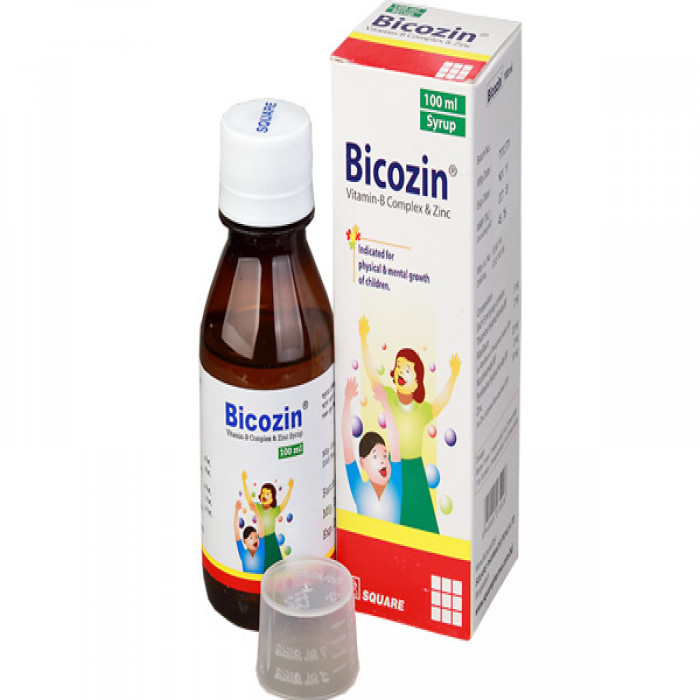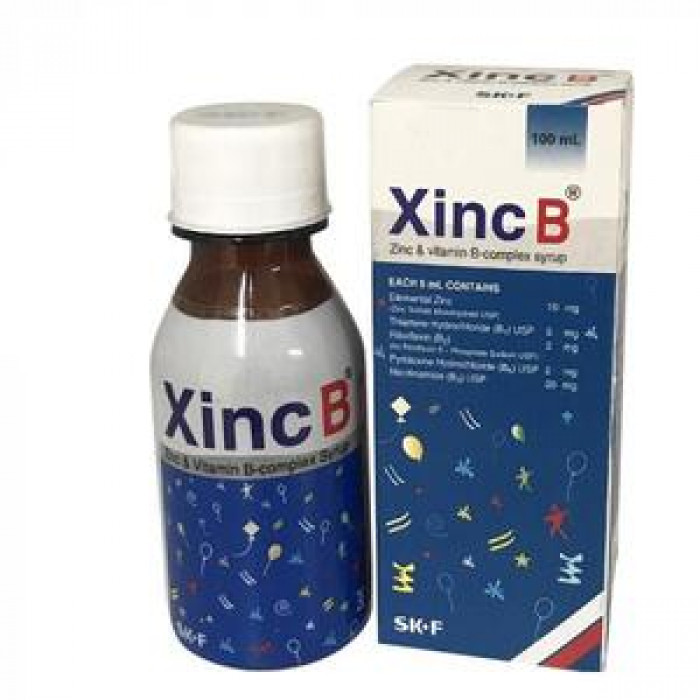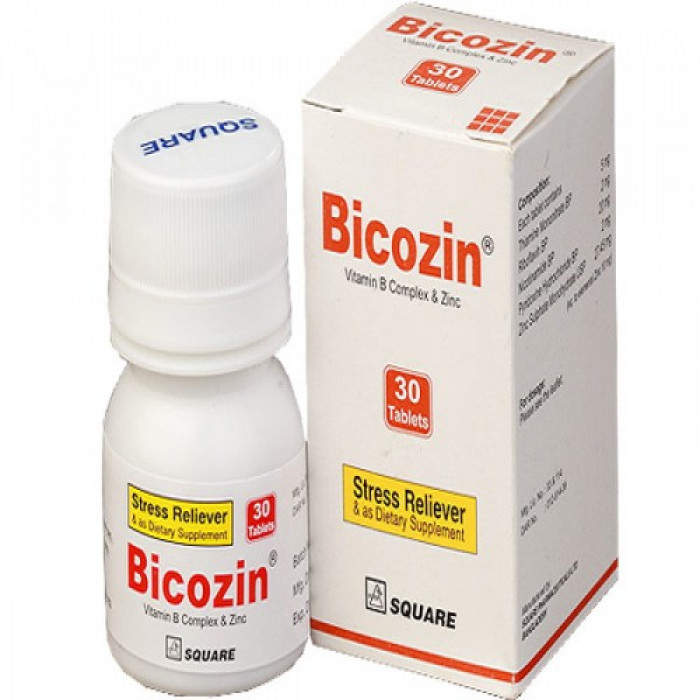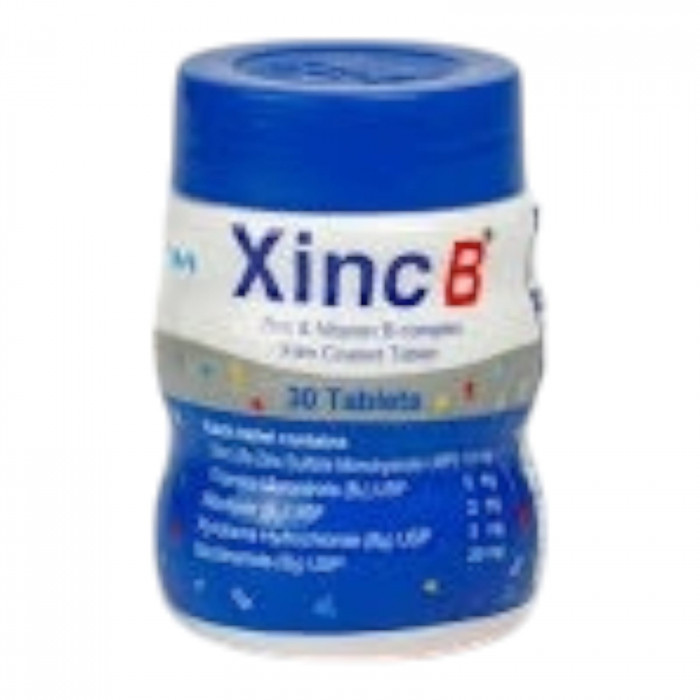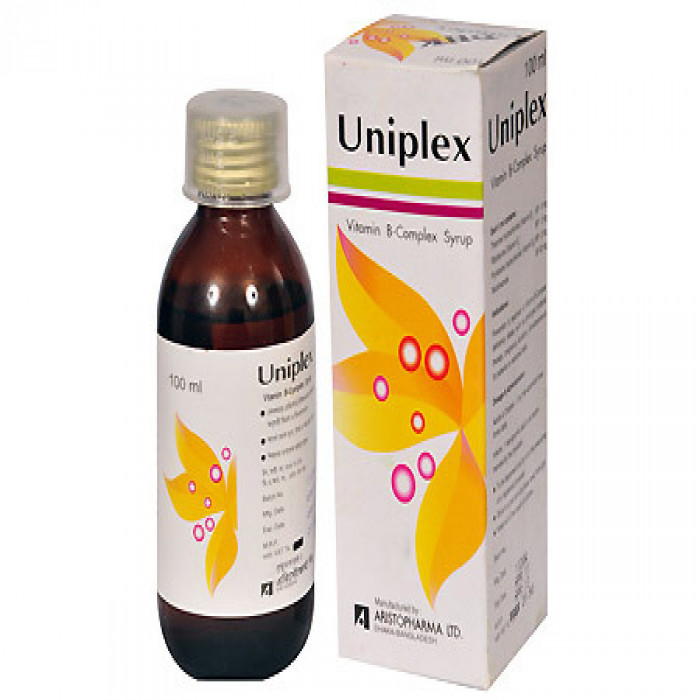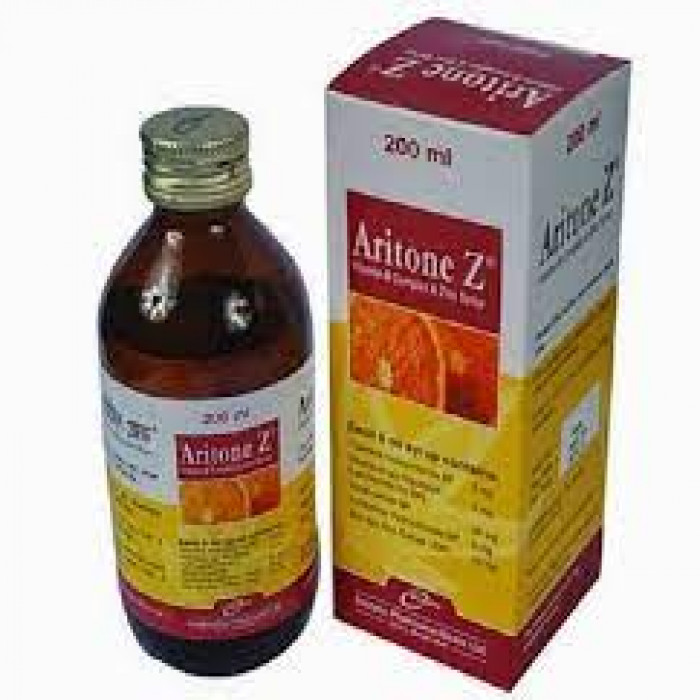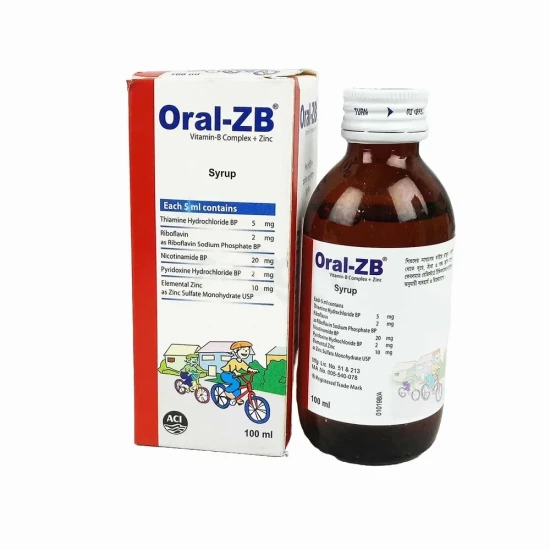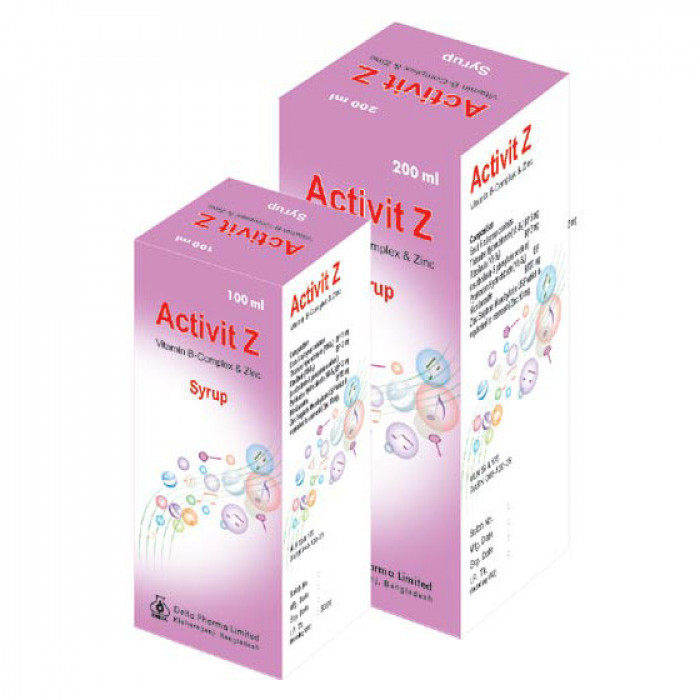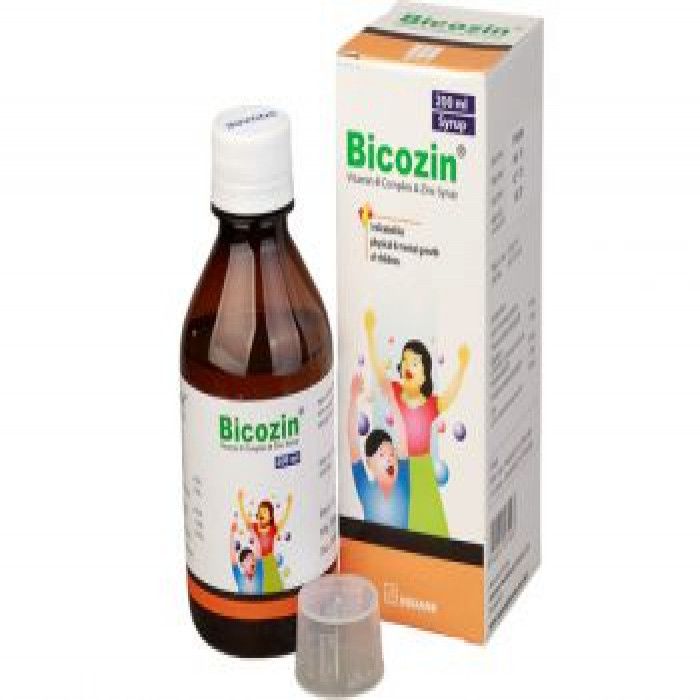
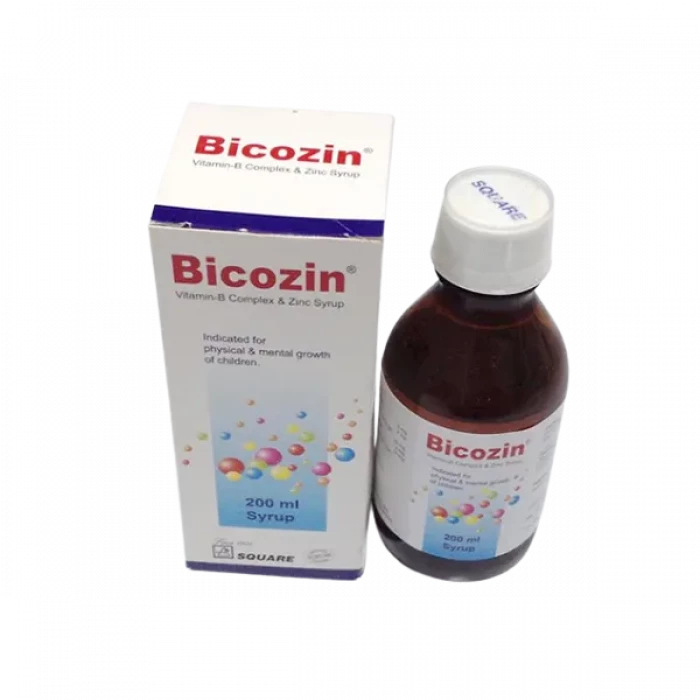
✔ 100% Authentic Product
👁️ Currently Viewing 5251
Bicozin Syrup 200ml
Bicozin Syrup is used to treat and prevent zinc and vitamin B deficiency.
Discount
Price: ৳ 105
MRP:
৳
110
5%
Off

100% Genuine Products, Guaranteed

Safe & Secure Payments, Always

Fast, Secure & Efficient Delivery

Proper Packaging
 Cash on Delivery - All over Bangladesh
Cash on Delivery - All over Bangladesh Regular Delivery - 12-24 Hours, Dhaka City* Charge Tk.39-59
Regular Delivery - 12-24 Hours, Dhaka City* Charge Tk.39-59 Regular Delivery - 24-48 Hours, Other Cities* Charge Tk.99-110
Regular Delivery - 24-48 Hours, Other Cities* Charge Tk.99-110
 ফ্রি ডেলিভারিঃ - ৯৯৯ টাকা+ অর্ডারে, ঢাকা
শহরে
ফ্রি ডেলিভারিঃ - ৯৯৯ টাকা+ অর্ডারে, ঢাকা
শহরে ফ্রি ডেলিভারিঃ - ২৯৯৯ টাকা+ অর্ডারে, ঢাকার
বাহিরে
ফ্রি ডেলিভারিঃ - ২৯৯৯ টাকা+ অর্ডারে, ঢাকার
বাহিরে
100% Genuine Products, Guaranteed
Safe & Secure Payments, Always
Fast, Secure & Efficient Delivery
Proper Packaging
 Cash on Delivery - All over Bangladesh
Cash on Delivery - All over Bangladesh Regular Delivery - 12-24 Hours, Dhaka City* Charge Tk.39-59
Regular Delivery - 12-24 Hours, Dhaka City* Charge Tk.39-59 Regular Delivery - 24-48 Hours, Other Cities* Charge Tk.99-110
Regular Delivery - 24-48 Hours, Other Cities* Charge Tk.99-110 ফ্রি ডেলিভারিঃ - ৯৯৯ টাকা+ অর্ডারে, ঢাকা
শহরে
ফ্রি ডেলিভারিঃ - ৯৯৯ টাকা+ অর্ডারে, ঢাকা
শহরে ফ্রি ডেলিভারিঃ - ২৯৯৯ টাকা+ অর্ডারে, ঢাকার
বাহিরে
ফ্রি ডেলিভারিঃ - ২৯৯৯ টাকা+ অর্ডারে, ঢাকার
বাহিরে
✅ Description:
Bicozin s used to treat, control, prevent, and improve the symptoms of the following diseases, conditions, and symptoms:
- Deficiencies in zinc
- Eye problems
- Lack of riboflavin
- Osteoporosis
- Diarrhea in undernourished children
- Migraine
- Immunity
- Nervous disorders
- Wilson's syndrome Nervous system disorders, osteoporosis, Wilson's disease, and other conditions
Safety Advices

Alcohol
UNSAFE
Avoid consumption of alcohol while taking Bicozin Syrup as it may lead to unwanted effects.

Pregnancy
CONSULT YOUR DOCTOR
Bicozin Syrup is recommended for use in pregnancy. Consult your doctor before taking it.

Breastfeeding
CONSULT YOUR DOCTOR
Bicozin Syrup is safe for use in breastfeeding women Contact your doctor before taking it.

Driving
CAUTION
Do not drive or operate any machines if you feel drowsy after taking Bicozin Syrup.

Kidney
CONSULT YOUR DOCTOR
Bicozin syrup should be used with caution in patients with severe kidney disease. Contact your doctor before taking it.

Liver
CONSULT YOUR DOCTOR
Bicozin Syrup is not recommended for use in patients with severe liver disease. Contact your doctor before taking it.
✔️ Uses of Bicozin Syrup
Treat-
- Vitamin B and Zinc Deficiencies
✔️ How does Bicozin Syrup work?
Vitamin B complex is a combination of eight B vitamins. They promote the growth of healthy new cells, protect the immune system, work as antioxidants, help to break down fats and carbohydrates, promote the development of healthy skin, hair, and nails, and reduce signs of skin aging such as redness and skin spots.
Zinc is used to treat and prevent zinc deficiency. It aids in improving the immune system as well as helping in the formation of red blood cells.
✔️ Side Effects of Bicozin Syrup
The following is a list of potential side effects from all of the ingredients in the Bicozin Tablet. This is not an exhaustive list. These side effects are possible, but they are not always experienced. Some of the side effects may be uncommon but severe. Consult your doctor if you experience any of the following side effects, especially if they persist.
- Allergic reaction
- Swelling of face, lips, and eyelids
- Restlessness
- Itching of skin
- Difficulty in swallowing
- Coughing
- Difficulty in breathing
- Sweating
- Feeling of warmth
- Mild tenderness or hardening at the injection site
- Breathing problems
- Low blood pressure
- Rashes
- Feeling sick
- Allergic reactions
- Skin irritation
- Weakness
- Thiazide diuretics increased the release of zinc through urine
- Zinc along with quinolone or tetracycline antibiotics reduces the amount of both zinc
✔️ Quick Suggestions:
- Aids cholesterol management and digestion
- Facilitates resistance to allergic diseases
- Helps to boost the overall immunity of the body
- Beneficial for recurrent fevers and respiratory problems
- It also helps in reducing tiredness and fatigue, protects cells from oxidative stress, and keeps your skin, hair, and nails healthy
✔️ Indication of Bicozin Syrup
Vitamin B-complex + Zinc Syrup generally aids in the treatment and prevention of skin, hair, and muscular conditions linked to vitamin B complex and Zinc deficiency. Additionally, it helps to increase energy levels, metabolism, and appetite and also provides relief from tiredness.
✔️ Pharmacology
Zinc is indeed essential for various biological functions in the body. It plays a crucial role in enhancing immunity, wound healing, digestion, reproduction, physical development, and intellectual development. Zinc is particularly important for normal growth and development during pregnancy, childhood, and adolescence. Additionally, zinc possesses antioxidant properties that help protect the body against oxidative stress.
In terms of its role in mental health, zinc deficiency has been associated with symptoms such as poor appetite, poor taste and smell perception, depression tendencies, white marks on nails (known as leukonychia), frequent infections, low fertility, prostate problems, mental health issues, poor wound healing, weak immune system, diarrhea, mental drowsiness, rough skin, and weight loss.
Moving on to B vitamins, they are indeed necessary for the release of energy from food. They play a vital role in maintaining healthy brain and nerve function, as well as supporting the formation of red blood cells in both children and adults. B vitamins are especially important for the healthy growth and development of children.
In adults, a deficiency in B vitamins can lead to various symptoms, including extreme fatigue, neurological manifestations such as weakness, poor balance, confusion, irritability, memory loss, tension, tingling in the extremities, and loss of coordination. Other signs of vitamin B deficiency may include sleep disturbances, nausea, loss of appetite, frequent infections, and skin damage.
It's worth noting that these symptoms can vary depending on the specific B vitamin that is deficient. There are several different B vitamins, including B1 (thiamine), B2 (riboflavin), B3 (niacin), B5 (pantothenic acid), B6 (pyridoxine), B7 (biotin), B9 (folate), and B12 (cobalamin). Each of these vitamins has unique functions and deficiency symptoms.
It's important to maintain a balanced and varied diet that includes sources of zinc and B vitamins to ensure optimal health and prevent deficiencies. However, if you suspect a deficiency, it's recommended to consult with a healthcare professional for proper diagnosis and treatment.
✔️ Dosage & Administration of Bicozin Syrup
- For adults: Take 10 ml (equivalent to 2 teaspoonfuls) of the syrup 2 to 3 times a day, or as prescribed by your physician.
- For children: Take 10 ml (equivalent to 2 teaspoonfuls) of the syrup 1 to 3 times a day, or as recommended by your physician.
- For infants: Take 5 ml (equivalent to 1 teaspoonful) of the syrup 1 to 2 times a day, or as advised by your physician.
It is important to follow the instructions provided by your physician, and it's recommended to shake the syrup well before use. The correct dosage and duration of treatment will be determined by your physician based on factors such as your age, body weight, and the specific condition being treated.
✔️ Interaction
Simultaneous intake of tetracycline antibiotics and zinc can lead to a reduction in gastrointestinal (GI) absorption and serum levels of tetracycline. Similarly, when zinc is taken together with fluoroquinolone antibiotics, it can decrease the GI absorption and serum levels of certain fluoroquinolones.
When niacin and HMG-CoA reductase inhibitors (such as lovastatin, a medication used to lower cholesterol) are taken together, it can increase the risk of myopathy (muscle disease) and rhabdomyolysis (breakdown of muscle fibers), which can be harmful to the body.
Pyridoxine, also known as vitamin B6, can diminish the effectiveness of levodopa, a medication used to treat Parkinson's disease, by increasing its peripheral metabolism.
Combining pyridoxine with phenytoin, an antiepileptic medication, may reduce the levels of phenytoin in the bloodstream. This interaction can potentially affect the therapeutic effectiveness of phenytoin.
✔️ Contraindications
Vitamin B Complex & Zinc is not recommended for people who have a known hypersensitivity to any of the product's constituents.
✔️ Pregnancy & Lactation
This is recommended in pregnancy and lactation.
✔️ Precautions & Warnings
In cases of acute renal failure, there may be a risk of zinc buildup in the body. Therefore, it is important to exercise caution and make appropriate dosage adjustments when using zinc supplements or medications containing zinc in individuals with this condition. The impaired renal function can affect the body's ability to eliminate excess zinc, potentially leading to higher levels of zinc in the body.
It's worth noting that zinc supplementation is not typically intended to treat severe or specific deficiencies. In cases of severe zinc deficiency or specific medical conditions requiring zinc therapy, the dosage and administration should be determined by a healthcare professional based on individual needs and the underlying condition.
If you suspect a zinc deficiency or have concerns about zinc supplementation, it is advisable to consult with a healthcare professional who can evaluate your specific situation and provide appropriate guidance and dosage recommendations.
✔️ Storage Conditions
Store in a cool, dry place, protected from light. Keep all medicines out of the reach of children.
⚠️Disclaimer:
At ePharma, we’re committed to providing accurate and accessible health information. However, all content is intended for informational purposes only and should not replace medical advice from a qualified physician. Please consult your healthcare provider for personalized guidance. We aim to support, not substitute, the doctor-patient relationship.




